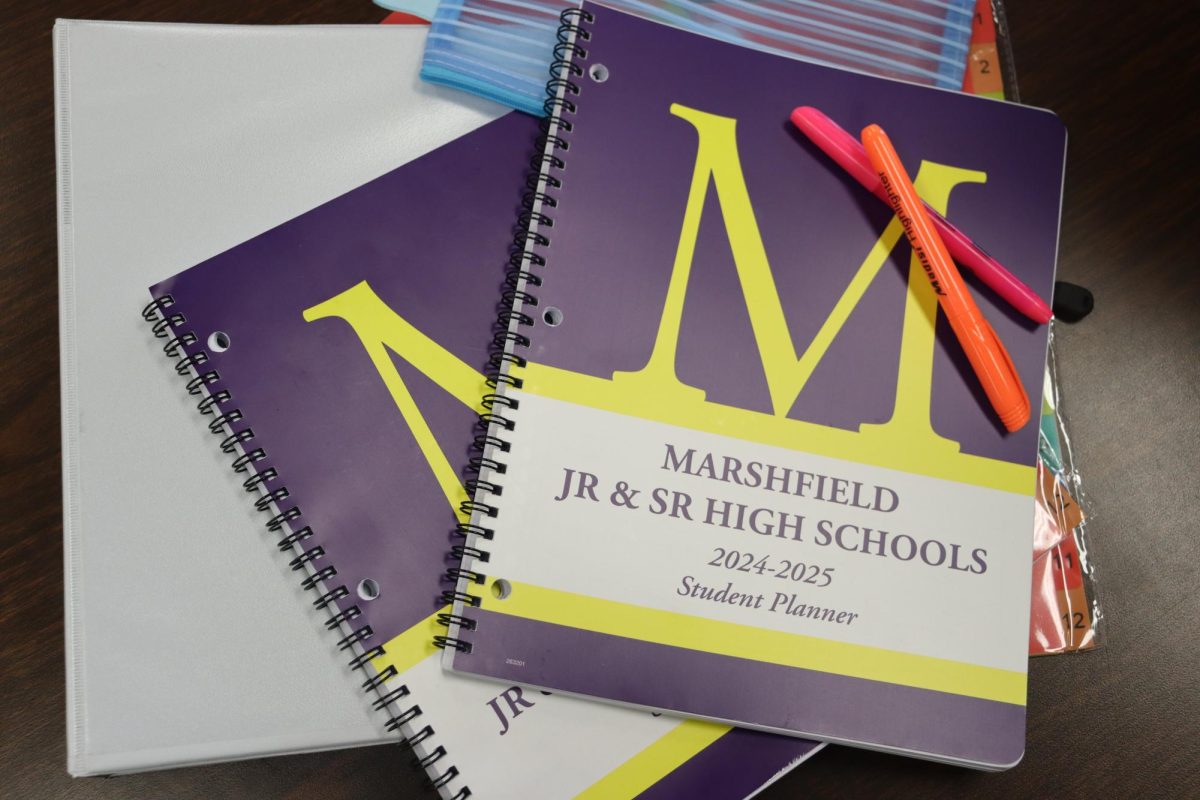By Wesley Bauer | Editor-in-Chief
Proficiency-based grading is being implemented at MHS in some areas and to some degree as staff, students, parents and community members adjust to a new approach for assessing students.
Proficiency grading involves teachers grading students directly on knowledge attained and will fully go into effect at the start of the 2013-14 school year. The shift from traditional grading is a result of Oregon House Bill (HB) 2220, which officially became law effective July 1, 2012. HB 2220 states teachers in the areas of English, math and science must begin grading their students on proficiency as of next school year, but many teachers have begun to incorporate it this year.
English teacher David Kline appreciates the new grading scale and implements it in all of his grading.
“I like to use the zero to four scale in my classroom,” Kline said. “I like rubrics that show you or give an example of what a four, three, or two look like.”
Although HB 2220 is quickly approaching and teachers have been encouraged to use the current school year to practice integrating proficiency grading into their courses, many staff members seem unsure about how to do so. According to Principal Greg Mulkey, the bill itself does not explain how each subject should be assessed to prove the student is proficient.
“We as a school district don’t have a clear understanding of how you grade proficiency,” Mulkey said. “We need more professional development to better understand how to grade proficiency.”
Dawn Granger, Coos Bay School District Superintendent, said she was nervous that staff might have difficulty integrating proficiency grading into their courses. However, she provided teachers time over the summer to meet with each other in teams to decide their own criteria for proficiency grading.
“Many of the teachers got together and set their own standards,” Granger said.
The teachers that did decide their standards have some understanding of how to grade their subject on proficiency but are still not entirely sure about it. Science teacher Cathy Danielson believes there are some teachers who understand it but as a whole the state is not clear on how they should assess the students.
“Some departments and individuals have a pretty clear understanding of proficiency,” Danielson said. “But for the most of us it’s still a learning process.”
According to Granger, the decision about whether a student is proficient in a certain area will be made by the teachers, and she believes they are fully capable of determining this.
“I rely on our teachers,” Granger said. “I trust them to make the right choice.”
Most teachers agree that proficiency grading requires the tests to be the major weight of a student’s grade. Math teacher Joe Walker believes a test does not have to be narrowed down to just a written assessment, but could be in the form of a large or small assignment.
“The test can be in the form of a task,” Walker said. “A task can be anywhere from a period to a weeklong project.”
Many students realize this is a practice year for proficiency, and some, like sophomore Alysen Barker, see the approach as an improvement and a better system for grading in the future.
“It’s going to take a few years to get organized,” Barker said. “In a few years it’ll be a good thing.”
Mulkey also believes the shift to proficiency grading is positive and allows students to more clearly understand what they are expected to learn in a class.
“I like the idea of proficiency grading because with that we can make clear what is proficient,” Mulkey said.
Some students see some possible negative side effects of the new grading system. Junior McKaela Gadzia believes if homework has no impact on one’s grade, then students will not do it and will not understand the material.
“Most kids are not doing homework because we don’t need to,” Gadzia said. “If they don’t do their homework they aren’t going to learn anything.”
Sophomore Hunter Olson believes proficiency is a positive step but recognizes some of the faults with specific classes on how teachers would grade proficiency with the current interpretation of HB 2220.
“It’s good in some classes,” Olson said. “But like in math, if you’re bad at tests, your grades will suffer.”
Granger believes the system is a good idea but regrets that she could not have helped with the bill’s definitions of proficient. She wishes teachers could have more of a say in the legislation.
“I believe the legislature wants what’s best [for the schools],” said Granger. “But there aren’t any teachers on it.”
According to Mulkey, proficiency grading is here to stay and will be the standard next fall whether staff and students are ready or not.
“It is the movement of the state,” Mulkey said. “I do think it will stick around.”






















